How do I choose an inverter for my solar system?
Harnessing the power of solar energy has become increasingly popular as a sustainable energy solution for homes and businesses alike. As you venture into the world of solar power, one crucial component you'll need to consider is the solar inverter. Serving as the crucial link between your solar panels and usable electricity, choosing the right inverter for your solar system is paramount. In this blog, we will unravel the important factors to consider, empowering you to make an informed decision.
1. Understanding Solar Inverters:
To begin, let's dive into what a solar inverter actually does. In essence, an inverter converts the direct current (DC) generated by your solar panels into alternating current (AC), which is the type of electricity used in our homes and businesses. It is the backbone of your solar system, ensuring efficient power conversion and optimal energy usage.
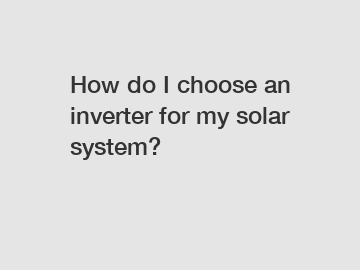
2. Consider your Solar System's Size and Capacity:
Before selecting an inverter, it's crucial to assess the size and capacity of your solar system. The number of solar panels you have, their wattage, and your average energy consumption will determine the inverter size you need. Ensure that the inverter's capacity doesn't exceed that of your solar panels, as it may impact the overall system performance.
3. Types of Inverters:
There are several types of solar inverters available in the market, each suited for different needs. Let's explore the most common options:
a) String Inverters: Ideal for residential setups, these inverters connect all your solar panels in a string. Although cost-effective, they suffer from potential power loss due to shading or soiling issues affecting the entire string.
b) Microinverters: These inverters are attached to each solar panel individually, allowing for better performance monitoring and higher energy yields, especially in case of shading. However, they tend to be slightly costlier compared to string inverters.
c) Power Optimizers: Similar to microinverters, power optimizers are installed at panel level. They maximize energy production while enabling panel-level monitoring, providing an excellent solution for partially shaded or complex installations.
d) Hybrid Inverters: Designed for those looking to add battery storage to their solar system, hybrid inverters allow for grid-tied solar power generation with the option of storing excess energy for later use.
Additional resources:What are the advantages of hydrotesting pipelines?
Inverter Battle: 3-Phase vs. Single Phase
The Future of Solar Energy: Discover the Power of Integrated PV Systems
Which Trace Heating Installation Services Stand Out for Energy Efficiency?
What are the advantages of diaphragm pump?
Which modern piston pump characteristic enhances efficiency?
Which compact size low voltage lithium battery is the best for maximizing energy savings?
4. Efficiency and Performance:
Efficiency is a critical factor to consider while selecting an inverter. Higher efficiency translates into better energy production and cost savings. Look for inverters with a high maximum power point tracking (MPPT) efficiency, as this feature ensures optimal energy conversion even when panels operate under different conditions.
5. Monitoring and Data Analysis:
Monitoring your solar system's performance is essential for detecting any issues and maximizing energy generation. Consider inverters that offer real-time monitoring capabilities, enabling you to track energy production, consumption, and potential faults remotely. Advanced inverters may provide additional features like smartphone integration, allowing you to access the information with ease.
6. Reliability and Warranty:
Investing in a reliable inverter is essential for ensuring the long-term performance and durability of your solar system. Opt for established brands with a proven track record in the solar industry. Additionally, check the warranty period provided by the manufacturer. A standard warranty for inverters ranges from 5 to 12 years, but some manufacturers offer extended warranties for added peace of mind.
7. Safety Considerations:
Safety should never be compromised when dealing with electrical components. Look for inverters with built-in safety mechanisms like overload protection, surge protection, ground fault detection, and temperature regulation. Certified inverters adhering to industry safety standards ensure a safe and secure solar system installation.
Conclusion:
Choosing the right inverter for your solar system is a pivotal decision that can impact the overall performance and longevity of your solar setup. By considering factors such as system size, efficiency, monitoring capabilities, reliability, and safety features, you can make an informed choice. Remember, consulting with a professional solar installer can provide valuable insights tailored to your specific requirements. Embrace the power of solar energy and embark on a sustainable journey to a greener future!
If you are looking for more details, kindly visit 3 phase solar inverter, 3 phase inverter solar, solar inverter 3 phase.
Additional resources:The Ultimate Guide to Solar Power: 3-Phase Inverters!
Which N2He leak test offers the best value?
What is the largest solar inverter for single-phase?
Unveiling the Unbeatable: Dry Diaphragm Pump Guide
Effortless Power: Low Maintenance Lithium Battery
What are the advantages of Oil Flushing Services?
Discover Diaphragm Pumps: How Do They Work & What Are Their Key Uses?
220
0
0
Related Articles
-
Revolutionizing Energy: Hybrid Storage Inverter Enables Unprecedented Independence!
Revolutionizing Energy: Hybrid Storage Inverter Enables Unprecedented Independence!
217
0
0
-
209
0
0
-
Solar Tiles: Revolutionizing Roofing Industry & Cutting Energy Bills.
Solar Tiles: Revolutionizing Roofing Industry & Cutting Energy Bills.
210
0
0
-
Digital Painting: Revolutionizing Art in Modern Society?
Digital painting has quickly become a popular form of artistic expression in modern society.
211
0
0
-
Are Hybrid Storage Inverters the Future of Energy Efficiency?
Are Hybrid Storage Inverters the Future of Energy Efficiency?
190
0
0
-
216
0
0
-
How to choose the best sound barrier glass for a noise-free workspace?
Noise pollution can be a major hindrance to productivity in any workspace.
193
0
0
-
240
0
0

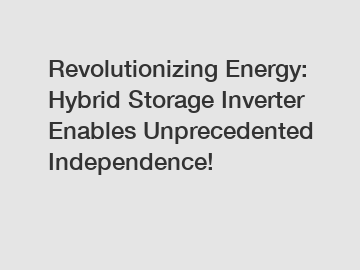
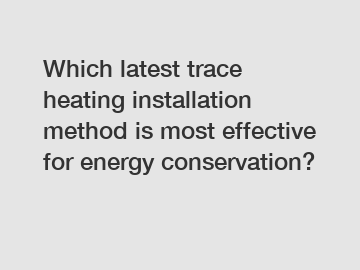
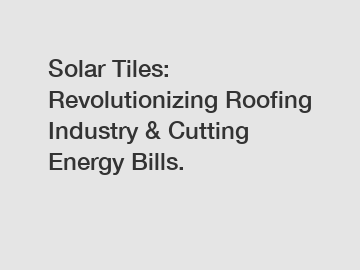

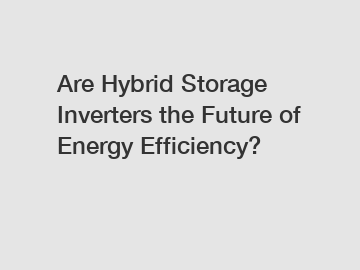
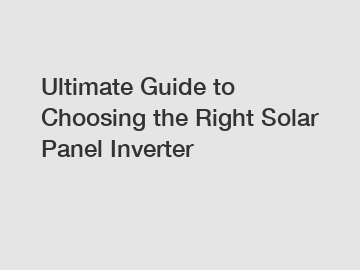
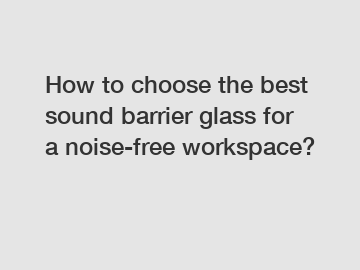
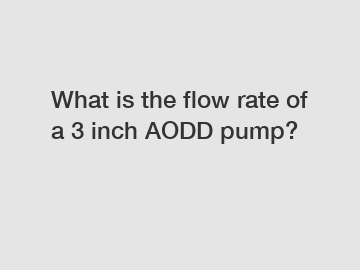
Comments
All Comments (0)